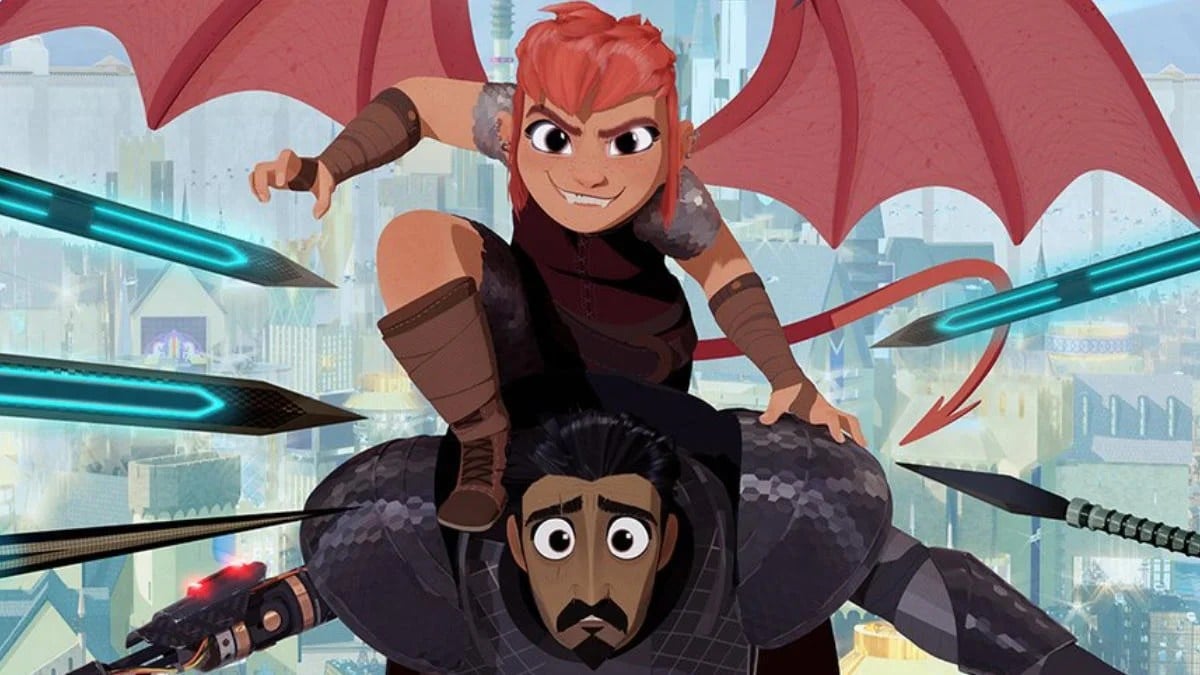
While fantasy stories may send us flying off to realms far different than our own, one concept seems inescapable in even the most distant of lands: gender roles. Traditional fantasy stories are full of characters who defy traditional expectations of their assigned sex (consider the peasant girl to warrior pipeline, for instance) but rarely does a story feature a character who totally turns away from binary concepts as a whole. One would think that in so many expansive worlds, more expansive gender identities would emerge. But alas, while fantasy novels with genderqueer protagonists are sadly harder to find than fated swords of destiny, these 10 best fantasy books featuring non-binary characters still manage to cut through.
Kill Six Billion Demons
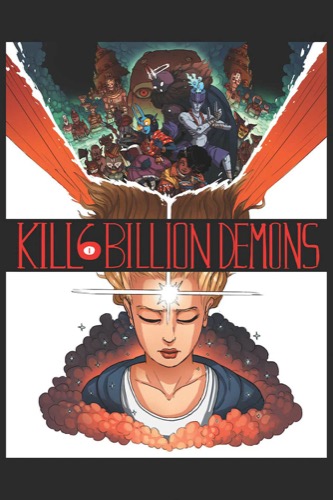
Tom Parkinson-Morgan’s Kill Six Billion Demons is the tale of barista Allison Ruth, who was spirited away into a bizarre alternate universe and tasked with killing a warrior god who seeks to destroy it. A melting pot of world religions, this whacky Heaven is populated by stone angels, trash talking devils, and a plethora of other alien beings. One of Allison’s closest confidants is 87 White Chain Born In Emptiness Returns To Subdue Evil, a member of a peacekeeping order of martial artist angels who are all non-binary. Well, almost all non-binary. As White Chain gets more in touch with humanity through Allison’s influence, she actually transitions from non-binary to female in one of the most fascinating subversions of a transgender awakening narrative I’ve ever read. White Chain is scorned by her angelic peers, who view gender as an insipid thing that distances them from the divine. Considering the KSBD universe was created by a non-binary God named YISUN that uses they/them pronouns, those angels might be onto something?
Empress of Salt and Fortune

Nghi Vo’s Empress of Salt and Fortune is genderqueer from page one. The story is narrated by a non-binary monk named Chih, who wanders the land recording historical events. After the death of the titular empress, Chih saunters into an abandoned palace to find an elderly woman named Rabbit still living there. Chih listens as Rabbit tells the story of the Empress In-yo, whom Rabbit once was served as a handmaiden. The novel details In-yo’s rise to power in an East Asian inspired fantasy world where non-binary people and queer love is treated as commonplace. Rabbit and In-yo may or may not have shared a bit over queer love themselves, after all.
Psalm for the Wild Built
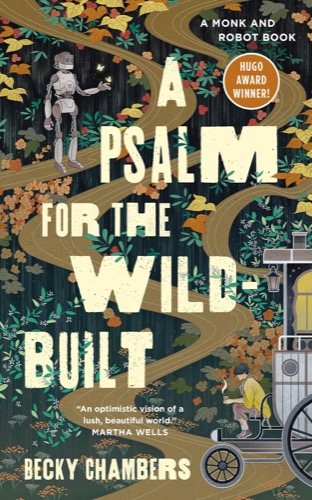
While Becky Chamber’s Psalm for the Wild Built is technically marketed as science fiction, the novel’s wild and naturalistic “solarpunk” vibe makes it feel much more like a work of cozy fantasy. The story is set hundreds of years after robots abandoned industrialized society and retreated to the woods – leading humans to adopt a simple lifestyle based around community farming. The novel concerns the non-binary Dex, who decides to live the life of a tea monk – sort of a tea pouring spiritual therapist. An Uncle Iroh in training, if you will. While journeying through the forest, Dex meets a robot named Splendid Speckled Mosscap, and the pair embark on an existential quest to for meaning in a chaotic world. Looking for feel good queer fantasy? You’ve come to the right neck of the woods.
Paul Takes The Form of a Mortal Girl
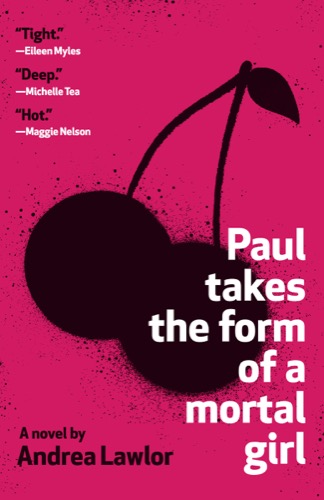
Andrea Lawlor’s Paul Takes The Form of a Mortal Girl is an exercise in queer magical realism, revolving around a non-binary shapeshifter named Paul as they bang their way across America. The pansexual Paul uses their ability in order embark on all manner of romantic escapades, and the novel unfolds into a sexual tell-all from a person who refuses to be pinned down by person, place, or thing. Paul is a free spirit, a wanderer, someone who soul contains as many multitudes as their body. Paul is also a little bit of a jerk, as their freewheeling nature sometimes causes them fall into a habit of lovin’ and leavin’. And eating all the food in their roommates’ fridge. Nobody’s perfect, even when you can be anybody you want.
Nimona

The breakout work of pioneering cartoonist ND Stevenson, Nimona is an urban fantasy/sci-fi romp. Set in a kingdom where technology and magic play equal parts, the shapeshifting outcast Nimona uses their abilities to survive and thrive in a futuristically feudal world. Nimona’s moral compass shifts as frequently as their body, and they soon become the sidekick of supervillain Ballister Blackheart, a disgraced knight. In their quest to sow the seeds of chaos, the pair uncover a conspiracy taking root deep within the kingdom. It’s a tender and tumultuous romp featuring laser swords, poison plant toxins, and one chaotic neutral young person’s attempt to find their place in the world.
Phoenix Extravagant
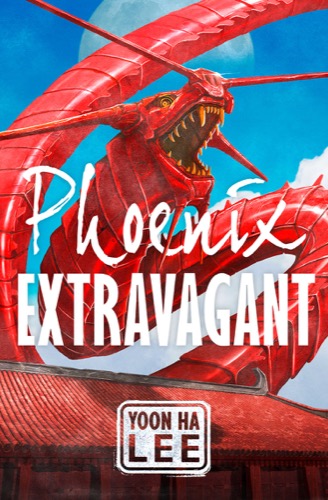
Phoenix Extravagant by Yoon Ha Lee is a techno-magical sci-fi/fantasy tale about a non-binary person’s attempt to steal a magical robot dragon and overthrow an oppressive regime – every enby’s dream. In world inspired by Japanese occupied Korea, street artist Gyen Jebi ekes out a living painting magical sigils onto automatons in order to empower them for government use. After discovering a draconic automaton kept secret by the government, Gyen hatches a plan to hijack the beast and use it to liberate their nation from foreign rule. The novel highlights how even average people can be unwittingly complicit in systemic wrongdoing, and shows that the only way to right those wrongs is to blow up society with a robo-dragon.
The Black Tides of Heaven

The Black Tides of Heaven is the debut novel in Neon Yang’s Tensorate series, which is set in an East Asian inspired fantasy world where children are able to choose their genders. The novel revolves around the twins Mokoya and Akeha, who are the children the realm’s magical and ruthless ruler – the Protector. As the twins grow, their paths diverge, with Mokoya serving as an ally of the oppressive regime while Akeha seeks to topple it. While the realm’s children are able to pick a gender through a ritual known as confirmation, Akeha decides to not undergo the ceremony – choosing to remain nonbinary. Their identity is viewed by society to be as normal as the magic they practice – which happens to be an arcane art called slackcraft that the Protector uses to maintain rigid social control.
She Who Became The Sun

Despite the obviously gendered title, She Who Became The Sun by Shelley Parker-Chan features a protagonist who slowly embraces a genderqueer identity. After adopting a dead brother’s name and destiny, the newly rechristened Zhu Chongba dresses as a man and joins a rebellion against the ruling Mongolian Empire. After ascending the ranks of the army, Zhu Chongba courts a noblewoman and begins currying favor with the movers and shakers of the realm. As their relationship to their own identity deepens, Zhu Chongba begins to see themselves through a genderqueer lens, refusing to adhere to rigid societal ideas. While Zhu Chongba may not be nonbinary in the modern sense of the term, they share common ground with transgender historical figures through their understanding of their gender expansive identity. And they become the world’s first trans emperor – big win for the history books.
The Mermaid, the Witch and the Sea
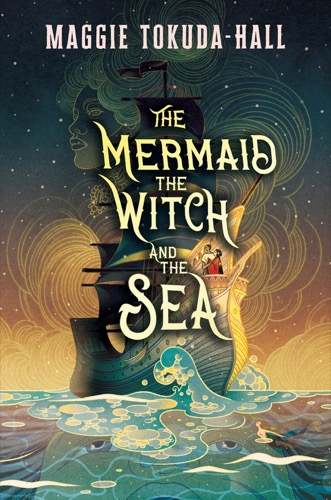
Maggie Tokuda-Hall’s The Mermaid, the Witch and the Sea is the story of Flora, a young teen who disguises herself as a boy in order to survive on the testosterone soaked pirate ship that she calls home. Flora (now Florian) begins a relationship with a captive noblewoman Lady Evelyn Hasegawa, who is being delivered via pirate ship into an arranged marriage. As the love between the star crossed pair deepens, Flora/Florian begins wonder if the gender she took on as a disguise actually feels more like her true self than the identity she left behind. The novel paints gender as something fluid, changing as the tides on which pirate ships are carried. Flora/Florian defies simple categorization, allowing readers to read in-between binary lines.
The Bruising of Qilwa
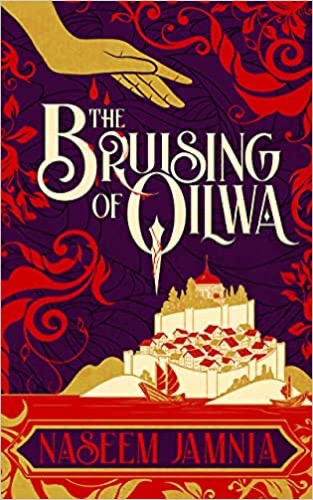
Set in a mythical world inspired by Persia, Naseem Jamnia’s The Brusing of Qilwa centers around a non-binary refugee named Firuz-e Jafari, who comes from a long line of blood magic practitioners. Fleeing genocide at the hands of a brutal regime, Firuz settles in the island city of Qilwa – which is currently suffering under the grip of deadly plague. Firuz is hired as a healer’s assistant, and discovers that the corruption caused by the plague is the work of an untrained blood magic user. As Firuz gets closer to uncovering the secrets behind the disease, they soon discover that healing medicines can also kill when they fall into the wrong hands.
(Featured Image: Netflix)
Have a tip we should know? [email protected]







